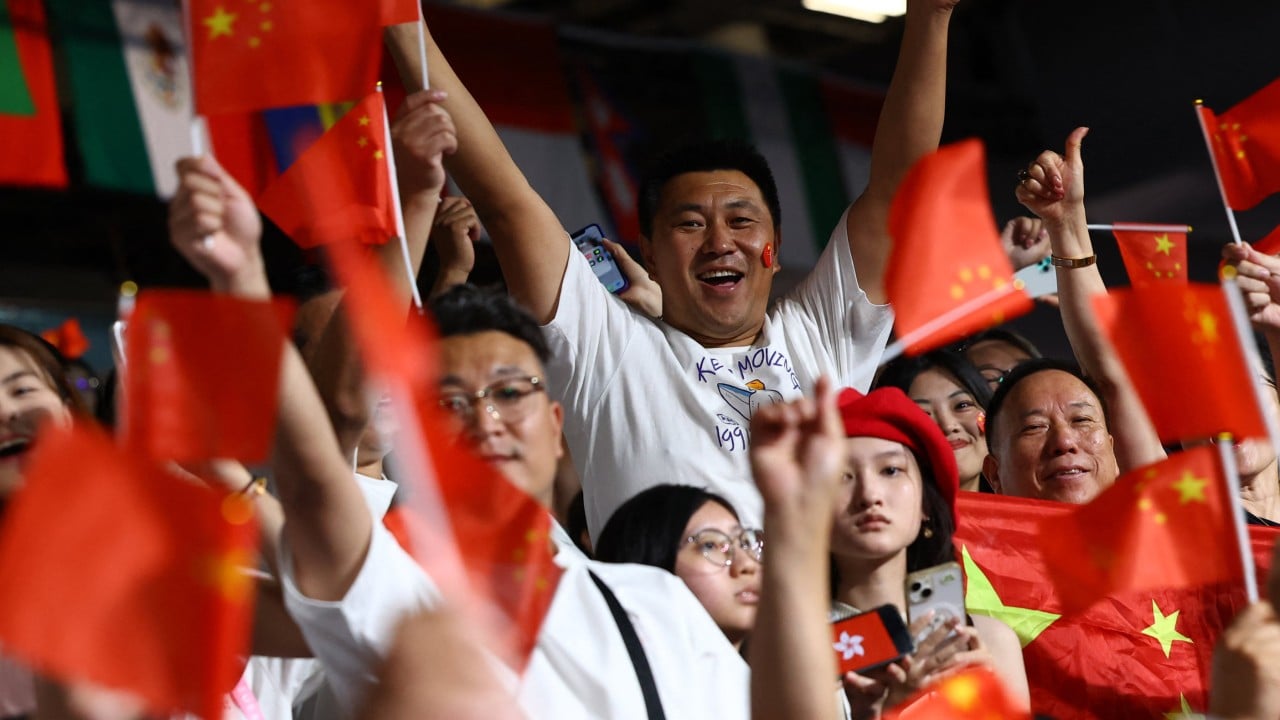Born and raised in colonial Hong Kong, I was used to our currency featuring the queen’s face, school holidays on the queen’s birthday and Commonwealth Day, and having white men with phonetically translated Chinese names as our governors. I would proudly don my Manchester United “home-team” jersey while my brother, in his Liverpool gear, played football in the living room, blissfully unaware that both cities are 10,000km away.
Only when I came of age did I understand that Hong Kong had been ceded to Britain in the aftermath of the two opium wars. But history was boring and it all happened too long ago; I thought the dust had settled and the world was at peace.
At the same time, it was difficult for me to grasp the concept of nations and, by extension, patriotism. While I knew Hong Kong was not a country, I did not see Britain as “my nation” either.
Before I could apply for a Hong Kong Special Administrative Region passport, I always found it strange that my BN(O) document had me as a “British national”, overseas or not. I didn’t feel like one, and nor did British immigration treat me as one: instead, BN(O) holders had to queue like foreigners with second-class documents. Just on the other side of the Hong Kong border, Deng Xiaoping’s reforms were beginning in the early 1980s, yet China remained a blur to me.
As a student in the United States, I had something of an identity crisis. When asked which country I was from, I could only blurt out “Hong Kong”. In general, Americans had poor knowledge of geography and most friends were clueless about Hong Kong; one even asked if it was the capital of Japan.
I vividly remember the moment the Union Jack and the colonial flag came down on the night of June 30, 1997, before the Chinese and new Hong Kong flags would go up. I was in a karaoke room with my friends, our off-pitch singing brought to a halt by the televised handover ceremony.

It certainly felt strange to be switching identity overnight. At that moment, I knew the lyrics of “God Save the Queen” better than I did “March of the Volunteers”. I didn’t know how to process this feeling, and was more worried about whether my song was next in the karaoke queue. After all, Deng had promised that horse racing and dancing would continue after the handover.
World views change with experience, and my eureka moment would come after I left the US to see the world. Before returning to Hong Kong, I backpacked around Europe for three months and volunteered in Africa for two months. I also went backpacking in South Africa, during a career break years later.
Travelling on a shoestring and staying in hostels allowed me to meet people from all corners of the world. I loved learning about other cultures, trying different cuisines and breaking through language barriers. As someone who felt stateless, I resonated with what Yuval Noah Harari wrote in Sapiens: A Brief History of Humankind: “States are rooted in common national myths.”
In Harari’s telling, it is a matter of chance that we were born into imagined communities that dictate what we eat, speak and believe. Thus, while my place of origin might be arbitrary, I thought I would become a world citizen who appreciates and respects all people, places and practices.
In between my two backpacking trips, my employer offered me the perfect opportunity to get to know China. I was seconded to Beijing for two years, and the best thing about living in the historic capital, other than being compensated for everything, was being able to visit landmarks every weekend at my own pace and never having to rush like a tourist.
Whenever friends and family visited, I accompanied them to the same attractions – the Forbidden City, the Temple of Heaven, the Great Wall – diving deeper into historical stories and details each time. My appreciation of China’s rich heritage grew, though I knew I was barely scratching the surface.

Perhaps I could come up with my own definition now. When people speak of China as the East, they might not know that Zhonghua, as the country is also known in Chinese, literally refers to the beauty or the flower in the middle.
I personally do not believe this is an arrogant reference to China’s place at the centre of the world. Instead, rather romantically, I understand it as a state of equilibrium and perfect harmony to aspire to. The desire for balance is customarily reflected in Chinese daily life, as relationships are emphasised, compromises are reached and deals are made.
In such a light, Chinese identity is a holistic, humanistic idea. Although I was once sceptical about nations, it no longer matters to me whether China was a collection of warring states, a series of dynasties, or is simply the modern nation founded 75 years ago. What matters most is the idea, even if imagined, that Chinese people have always been evolving and shall do good for humanity, while keeping relations harmonious.
An identity crisis becomes meaningless, for it no longer matters what others perceive me to be. To my mind, we contemporary Chinese are here to make progress, use resources and technologies to help others, bring solutions instead of problems and strive for a balanced world with compassion, empathy, love and understanding.
Dennis Lee is a Hong Kong-born, America-licensed architect with years of design experience in the US and China


